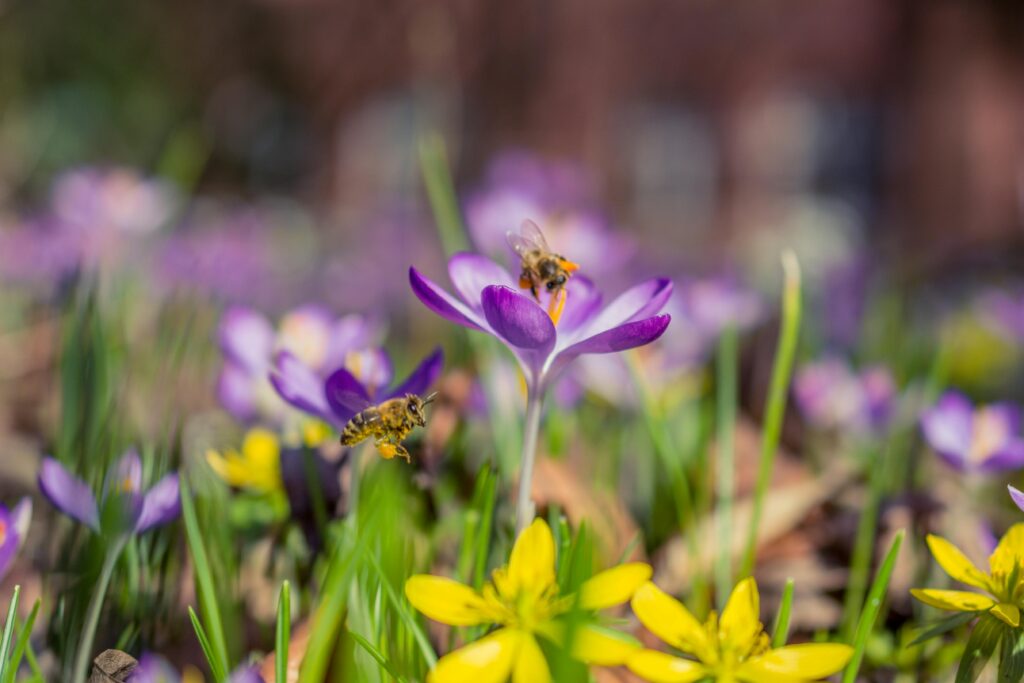With spring in the air and longer daylight hours arriving, this is the perfect opportunity to head outdoors!
Spending time outside and connecting with nature in any way you can is incredibly beneficial for your body, and mental health.
Research shows that being in nature can reduce stress, lift your mood, and improve your overall wellbeing.
Chemicals released naturally by plants and trees called Phytoncides and Terpenes help to strengthen our immune, hormonal, circulatory and nervous systems as we breathe them in. You may have heard of Shinrinyoku, or forest bathing, which is the Japanese practice of taking a gentle visit into nature for the many health benefits this brings.
If you’re in counselling or thinking about starting soon, then adding some outdoor time to your self-care routine can really help with emotional resilience and healing.
How to Incorporate Nature into Your Routine
Even if you live in a city, there are still plenty of ways to bring nature into your routine:
- Go for a daily walk in your local park or green space.
- Spend time gardening or caring for indoor plants.
- Practice mindfulness outdoors, sit quietly and observe the world around you.
- Exercise outside, whether it’s a jog, yoga session, or relaxed walk.
- Plan outdoor social activities, like picnics or group walks.
- Visit the seaside if you can, or find a nearby river, lake or nature reserve.
Nature Supports Mental Wellbeing
Spending time in green spaces can do wonders for your mind. Whether it’s a walk in the park, a stroll in the woods, or simply sitting in a garden, nature has a calming effect. Here are some of the ways it can boost your mental health:
1. Reduces Stress and Anxiety
Time spent in nature has been shown to lower cortisol, the hormone linked to stress. Natural surroundings encourage relaxation by activating your parasympathetic nervous system, which helps you unwind. Sounds like birdsong, rustling leaves, and flowing water can have a meditative effect, helping to calm your mind and reduce anxiety. The Mental Health Foundation highlights the positive impact of nature on mental health.
2. Lifts Your Mood and Reduces Symptoms of Depression
Being outside can boost your serotonin and dopamine levels — the neurotransmitters that help you feel happier and more balanced. Sunlight also helps regulate your circadian rhythms, which can improve sleep quality and energy levels, both of which are essential for mental well-being. According to Mind UK, connecting with nature can play a key role in managing depression and boosting overall mental health.
3. Boosts Focus and Creativity
If you’ve been feeling foggy, overwhelmed or burnt out, stepping into nature can give your brain a reset. Studies show that green spaces help improve our focus and cognitive function, giving your mind a chance to recover from daily stresses.
Natural England talks about the power of Green Social Prescribing, and have conducted their own research into how green spaces can enhance cognitive performance and overall well-being, you can read more about it here…
4. Encourages Mindfulness and Presence
Being outside naturally encourages mindfulness—that sense of being present in the moment. Whether you’re feeling the warmth of the sun, listening to birds, or noticing the colours of spring flowers, nature invites you to slow down and take it all in.
Being in nature encourages mindfulness — the practice of staying present and engaged in the moment. Feeling the warmth of the sun, listening to the birds, or noticing the vibrant colours of spring flowers all draw our attention to the present.
The National Trust encourages walking in nature as a great way to manage stress, improve our sleep help to feel more relaxed.
5. Taking care of your Body and Mind
Whether you’re walking, cycling, or just stretching outdoors, moving your body releases endorphins—your brain’s natural mood boosters.
Exercising outside offers a double benefit: the physical movement plus the calming effect of your surroundings. Even gentle activities like yoga in the park or a casual stroll can make a big difference.
The RSPB suggests that spending time near water, such as rivers or the seaside, can be especially calming.
Best of all, nature is free to enjoy, no pricey memberships required!
Nature and Counselling: A Perfect Pair
Engaging with nature can be a valuable addition to therapy if you are accessing or seeking counselling. Nature provides a calm and grounding environment to complement the work you’re already doing as part of your therapy.
Many groups like The Woodland Trust promote the positive impact of green spaces on mental well-being.
Take a moment to step outside when you can, breathe in the fresh air, and let nature work its magic.


